13 Horror Movies That Meaningfully Address Grief
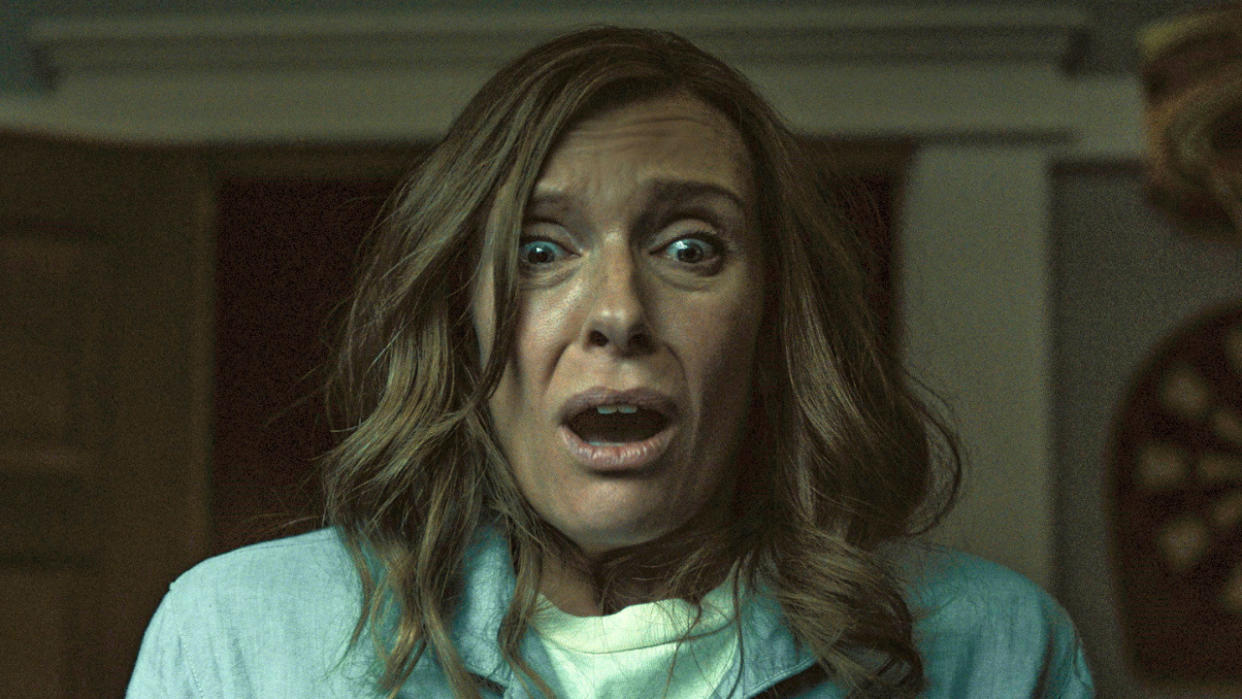
Most horror films that deal with the topic of grief wind up earning a spot among the greatest horror movies of all time. Reason being, while some who may find it difficult to relate to characters suffering from an alien abduction, the rise of the undead, or other bizarrely fantastic circumstances, they can identify with the topics such as the loss of a loved one.
Even those who may not have experience a mourning period of their own might find the mere idea of such personal tragedies more horrifying than anything they have seen in a gruesome monster movie or from their favorite slasher films. That being said, there are plenty of features in the horror genre that do directly and realistically address the topic and we've highlighted 13 of them here.
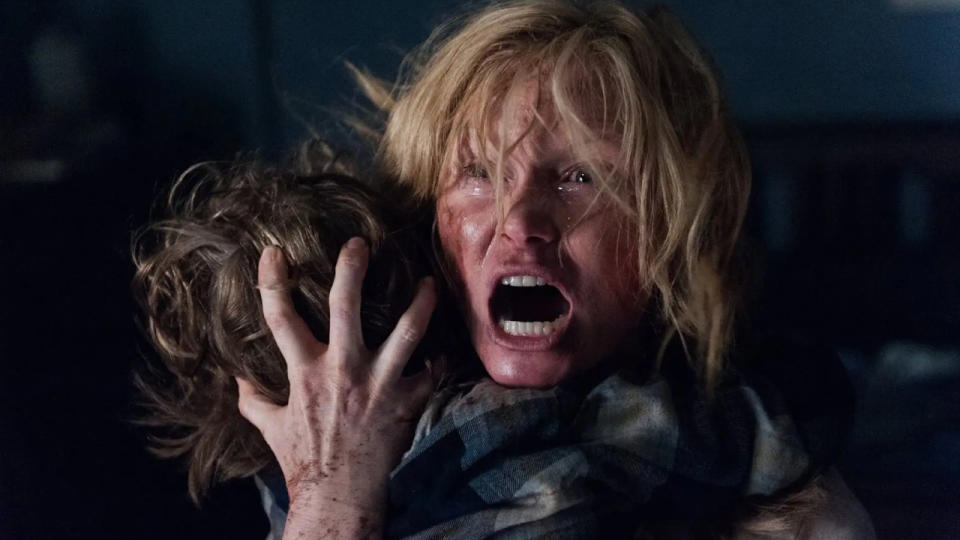
The Babadook (2014)
What makes the mysterious title character of The Babadook one of modern horror’s greatest villains is not just the entity’s ghastly appearance or merciless methods of taunting, but more what it represents. Writer and director Jennifer Kent’s Australian import is really the story of single mother (played by Essie Davis) and her struggle to have a loving a relationship with her young son (played by Noah Wiseman) since he was born on the day her husband died. The malevolent entity could be interpreted as a manifestation of her pain and resentment, which she must learn to live with by the end of the film.
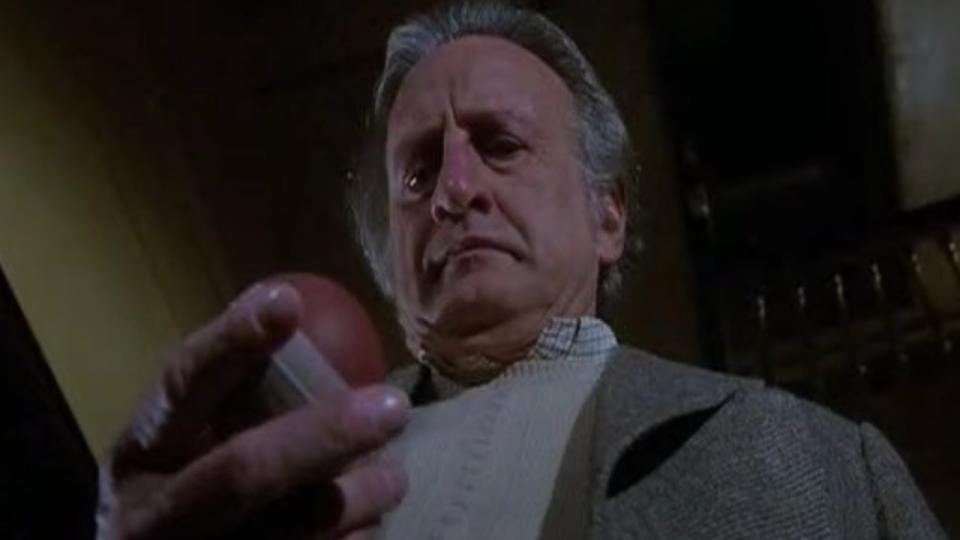
The Changeling (1980)
The haunted house classic The Changeling begins with what is arguably its most horrifying scene, featuring music professor John Russell (played by Academy Award winner George C. Scott) witnessing a motor accident that kills his wife and daughter. Not long after, he begins renting a Seattle mansion that he discovers is also occupied by the spirit of a boy who wants him to help reveal the mystery behind his death. The ensuing investigation — with creepy moments that make the film a horror favorite of Martin Scorsese’s — turns out to be just what John needs to come to terms with the tragedy that has recently befell him.
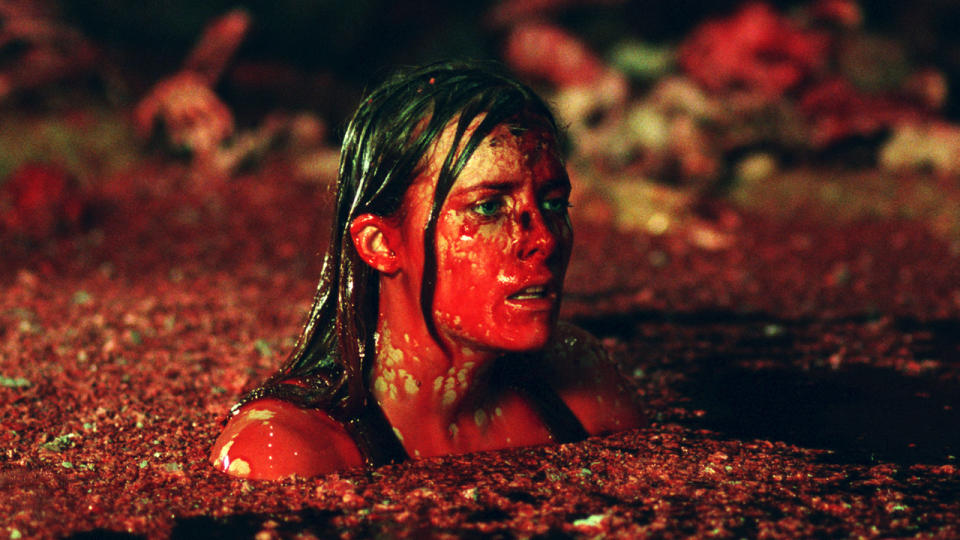
The Descent (2005)
Similar to The Changeling, The Descent also opens with the death of the spouse and daughter of the main character, Sarah (Shauna Madonald), who tries to overcome her depression a year later by joining her friends on an ill-fated caving expedition. The fright fest that ensues after the group becomes trapped in unexplored territory with vicious nocturnal creatures is relentlessly terrifying on the surface, but what makes it one of the best horror movies of the 2000s is the way the underground maze symbolizes grief's seemingly inescapable nature. This is more apparent in Neil Marshall’s unrated director’s cut, featuring a more unsettling, heartbreaking, and widely preferred alternate ending.

Don't Look Now (1973)
Grief can lead to (or even be a form of) obsession — both of which are central themes of one of the best horror movies of the 1970s, Don’t Look Now. Following their young daughter’s fatal drowning, a married couple (played by Julie Christie and Donald Sutherland in one of his best movies) take some much-needed time away in Venice, but the painful memory only continues to haunt them more pervasively as their vacation is plagued by logic-defying circumstances. Director Nicolas Roeg’s adaptation of Daphne Du Maurier’s story is a mind-bending, Hitchcockian nightmare only made more chilling by its grounded commentary on the lasting effect of loss.

A Ghost Story (2017)
The lasting effect of loss is just one central theme in A Ghost Story, which follows a recently deceased composer (played by Academy Award winner Casey Affleck) haunting his wife (played by Oscar nominee Rooney Mara) in the years after his death. The conceit of this acclaimed A24 movie sounds a bit comical from a visual standpoint — the spirit literally wears a white sheet — and, admittedly, the film’s somber tone just barely qualifies it as horror overall. Indeed, writer and director David Lowery’s interpretation of the afterlife doesn't specifically aim to spook, but executes a transcendent, deeply thought-provoking exploration of one’s need to preserve their legacy beyond life, as well as the healing power of time.

The Invitation (2016)
For some, the most difficult, but most important, aspect of grief is confronting and accepting your feelings – but what does one turn to when they cannot bring themselves to face that step? That is posited in one of the greatest horror movies by a female director, Karyn Kusama’s The Invitation, in which a man (played by Logan Marshall Green) and his girlfriend (played by Emayatzy Corinealdi) attend a dinner party hosted by his former wife (played by Tammy Blanchard) years after they lost their son. I am not willing to give away much more about this scintillating masterpiece of slow-burn horror, but have no issue praising its brazen depiction of the potentially dangerous influences of desperation.

Hereditary (2018)
Sometimes, one’s struggle or inability to process grief can stem from a strained relationship with the deceased loved one – which Hereditary addresses when it begins with a funeral for the mother of Annie (Toni Collette in an astonishing performance). Soon, things take a shocking turn that evolves the story into an increasingly upsetting meditation on tragedy’s deteriorating effects, in addition to the fear of passing past trauma onto your loved ones. It is a thoroughly hopeless downward spiral that is not for everybody, but that is part of why writer/director Ari Aster’s head-turning debut is considered one of the top-tier A24 horror movies so far.
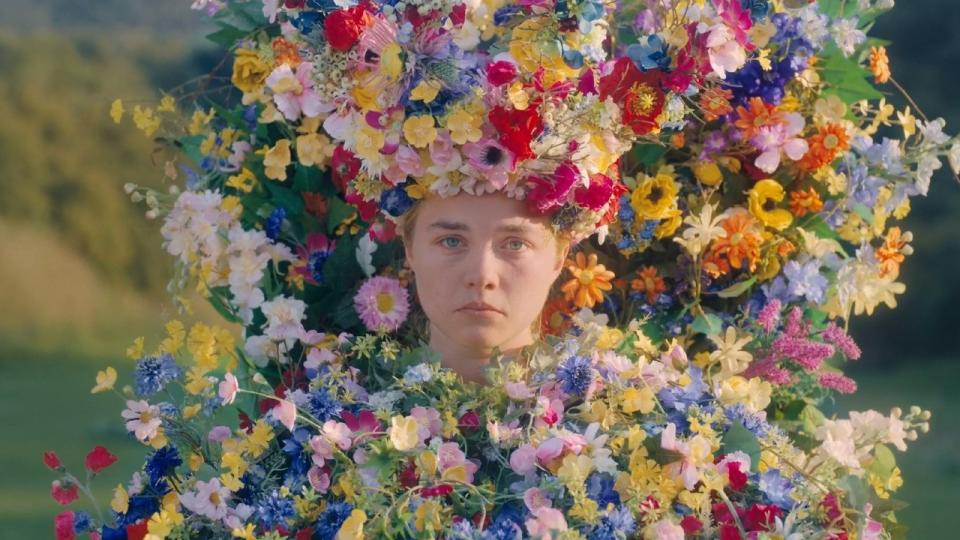
Midsommar (2019)
Aster further cemented himself as a modern trauma auteur with his sophomore effort, Midsommar, which wastes absolutely no time establishing the source of Dani’s (Florence Pugh) grief with a cold open depicting her entire family's murder-suicide. She seeks support and comfort from longtime boyfriend Christian (Jack Reynor), who is unable to provide either, eventually resulting in their break-up, but does find a much-needed support system while attending a seemingly idyllic Swedish festival. To see our grief-stricken central character finally achieve solace, albeit in a most unsettling way, makes for a bittersweet ending to this “cult” horror film (in the true sense of the term).

The Night House (2021)
CinemaBlend's Eric Eisenberg picked director David Bruckner’s The Night House as the best horror movie of 2021, in part for its expertly crafted exploration of grief. Widowed teacher Beth’s (Rebecca Hall) own uncertainties about the afterlife have made it difficult to cope with her her husband’s self-inflicted death, until she begins to suspect his spirit lingers in their lakeside home. The chilling truth behind this haunting at the end — which Hall requested to have changed from the original script — acts as a profound symbol for the darkness that people struggle to overcome in the wake of tragedy.
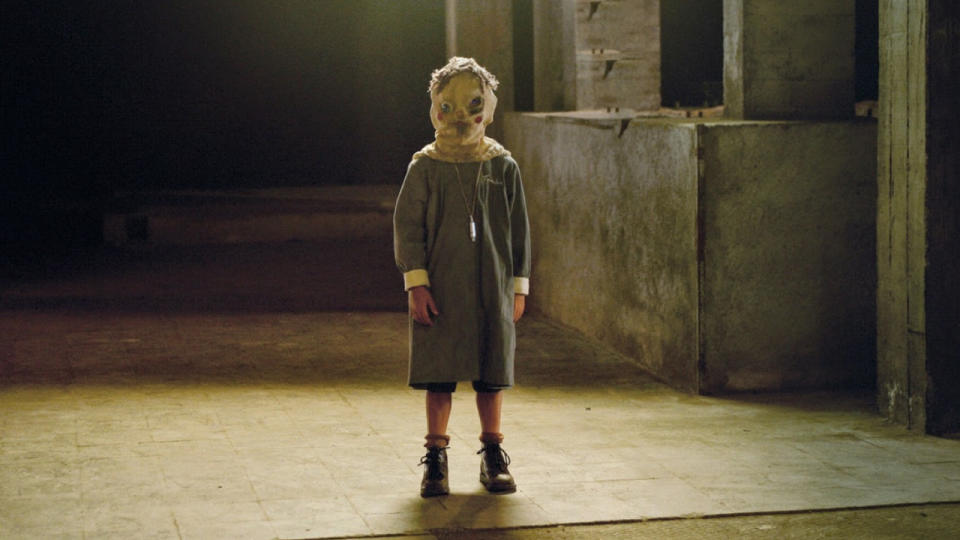
The Orphanage (2007)
Most films covered in this list involve people struggling with a loved one’s passing, but The Orphanage explores the fear of not knowing where your loved one is. The Spanish-language thriller from director J.A. Bayona and producer Guillermo del Toro stars Belén Rueda as a woman searching for her missing son, believing he was abducted from the home for orphaned children where she grew up. Her desperate search even involves calling a seance – something parents of missing children have been known to do – which results in some dark discoveries.

Pet Sematary (1989)
If you had the chance to bring a loved one back to life, even if you knew that the consequences could be dire, would you? Stephen King’s 1983 novel Pet Sematary — which was first adapted for film in 1989 — explores this concept in deeply unsettling, but undeniably honest ways. When Dr. Louis Creed (Dale Midkiff) loses his young son not long after learning a burial ground that can resurrect the dead lies near his new home, he makes a decision that may seem unimaginable to some, but sympathetic to others who may be left wondering if they would have the same reaction.
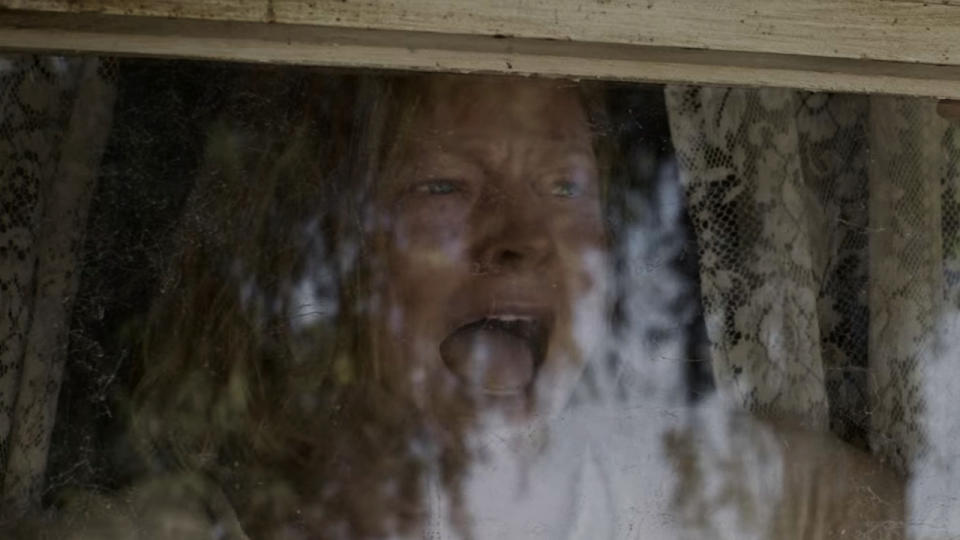
Run Rabbit Run (2023)
The most recent film on our list is the 2023 Netflix movie release, Run Rabbit Run, in which single mother Sarah (Succession cast member Sarah Snook) tries to understand why her daughter, Mia (Lily LaTorre), suddenly prefers to be called “Alice.” We learn by the end of the Australian thriller the significance of that name to Sarah and its traumatic impact on her life and her relationship with her child. Director Daina Reid and writer Hannah Kent have both said that the thriller is about the uncomfortable topics that some parents are forced to confront and how they can be linked to painful memories or mistakes.
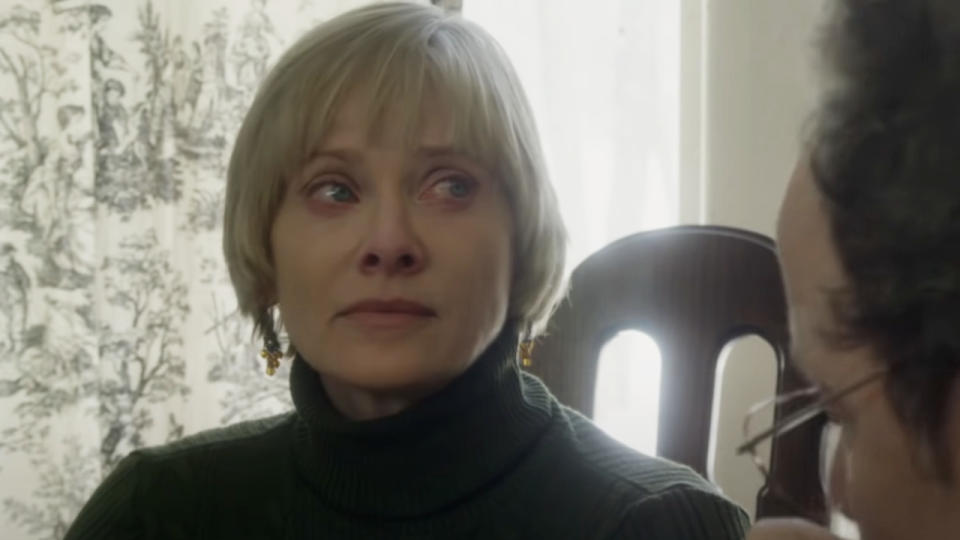
We Are Still Here (2015)
It can be difficult for someone to avoid being reminded of the person they are mourning, such as the main couple in We Are Still Here. When Anne Sacchetti (legendary Scream Queen Barbara Crampton) and her husband Paul (Andrew Sensenig) begin sensing there is a spiritual presence in their new home, their first inclination is to suspect it is their son who recently died in a car crash. As it turns out, that is not quite the case, but the characters’ pondering of the possibility is what gives writer and director Ted Geoghegan’s indie ghost story an unexpected level of depth and heart.
For me, the best kind of scary movies are the ones that address real, uncomfortable topics amid the escapist fantasy elements. As such, I consider these horror films that address grief to be among the strongest.
